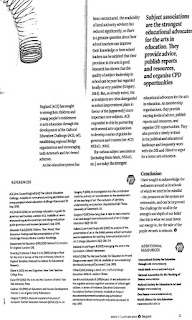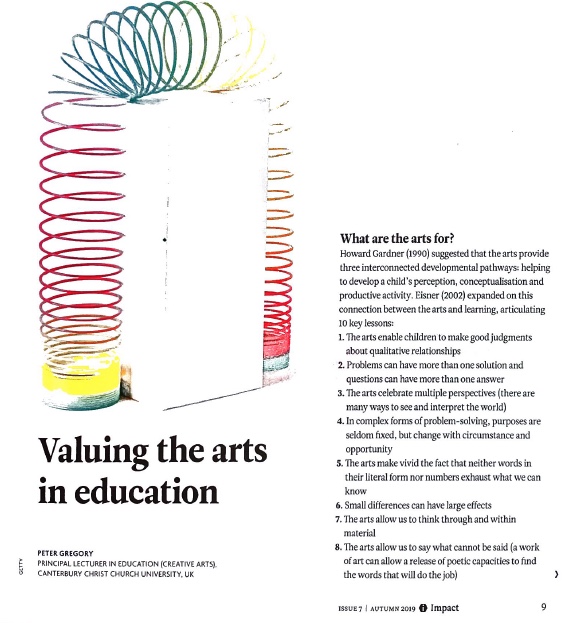Journal Club
Journal Club
 Journal Club is a research forum for teachers by teachers. Each session of Journal Club will focus on articles taken from Chartered College of Teaching’s themed journal ‘Impact’. Participants of Journal Club will engage in a professional discussion relating to the research in the journal and consider examples of practice that exemplify the research. Participants may decide to develop practice relating to the research and help in providing the Chartered College of Teaching with practice that exemplifies the very best in our profession.
Journal Club is a research forum for teachers by teachers. Each session of Journal Club will focus on articles taken from Chartered College of Teaching’s themed journal ‘Impact’. Participants of Journal Club will engage in a professional discussion relating to the research in the journal and consider examples of practice that exemplify the research. Participants may decide to develop practice relating to the research and help in providing the Chartered College of Teaching with practice that exemplifies the very best in our profession.The Chartered College of Teaching
The Chartered College of Teaching opened in January 2017 as the new professional body for the teaching profession. Membership is voluntary and provides access to research, events, a wide community of educators, and high-quality professional learning.
Perhaps most importantly is that The Chartered College of Teaching provides the chance to make a difference for our profession.
Further information about joining the Chartered College of Teaching here.
Do I need to be a member of the Chartered College of Teaching to attend Journal Club?
Participants in Journal Club do not need to be members of the Chartered College of Teaching; although membership does provide access to a repository of research journals and resources. Our first Journal Club also had a range of teachers from the primary phase, university lecturers, school leaders, a trust CEO and a Trust Business Manager. This diverse group meant the discussion was varied and engaging.
When is the next Journal Club taking place?
Due to COvid-19 we have no further journal clubs planned. Watch this space for more information.
Previous Journal Clubs:
9 October 2019 4:00- 5:00pm at Warden House Primary School, Deal.
13 November 2019 4:00-5:30pm at Pilgrims' Way Primary School, Canterbury
24 March 2020 4:00-5:30pm at Brenzett CE Primary School, Brenzett.
You may also like to sign up for our #BrewEdCanterbury event on Saturday 28 March 2020 from 12:00-5:00. (Postponed until after lockdown measures)
What was the focus of our first Journal Club?
Our first Journal Club met in November 2018. The first edition of the Chartered College of Teaching’s journal ‘Impact’ had a focus on evidence-informed practice. This formed the focus to the inaugural meeting of our Journal Club; delegates pre-read of the article on page 11 of the journal by Louise Stoll from the Department of Learning and Leadership, UCL Institute of Education in London entitled 'Five challenges in moving towards evidence-informed practice". This article gave a springboard to our discussions at Journal Club. The delegates, teachers from a range of primary schools and Canterbury Christ Church University, shared their thoughts on the article and spoke about evidence-informed practices in their own settings. The vision of the Journal Club is to bring theory to life and engage in evidence-informed practice in our own settings.
What is the focus of our next Journal Club?
We will be using Journal articles from the Arts in Education edition of Impact journal, creativity and cultural education. In particular the article written by Peter Gregory ‘Valuing Arts in Education’ as the springboard to our discussions. This session will also consider the place of the arts in our school curriculum and touch on the new Ofsted framework in relation to the arts. Hope to see you there.Here is the article we will be discussing:




















